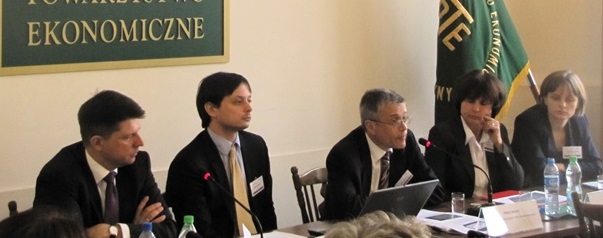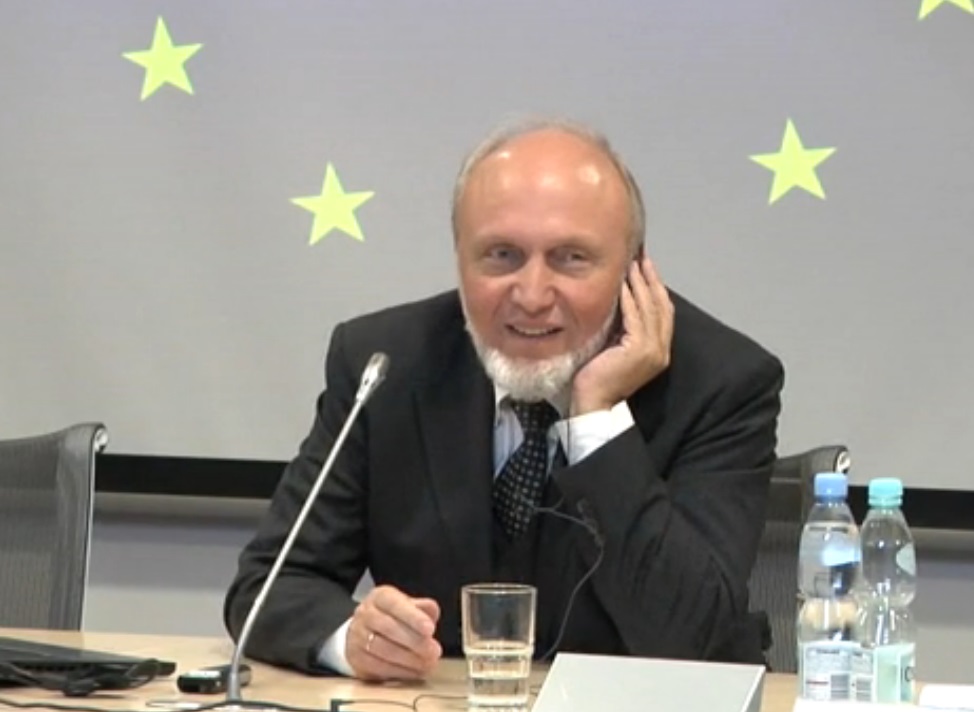Labor market and competition policies in Poland – The Launch of OECD Economic Survey: Poland 2014
 Poland’s overall economic performance has been impressive over the last decade, allowing living standards to converge steadily towards the EU average” reads the recently released OECD Economic Survey: Poland 2014, although two areas of economy – the labor market and product-market competition – are “still restraining the country’s economic potential.”
Poland’s overall economic performance has been impressive over the last decade, allowing living standards to converge steadily towards the EU average” reads the recently released OECD Economic Survey: Poland 2014, although two areas of economy – the labor market and product-market competition – are “still restraining the country’s economic potential.”
The launch of the report, co-organized by CASE, the Polish Economic Society (PTE) and the Association of Polish Economists (TEP), was one of the conferences that accompanied the release of the survey in Poland. Our guest speakers, Peter Jarrett and Antoine Goujard from OECD, explained that the reason why OECD has chosen to look specifically at the labor market this time is because it does not run nearly as well as it should, regardless of its slight improvement in recent years with some good governmental reforms.
The OECD, on completing their economic survey of Poland, has gone into great detail and depth looking at many factors of the Polish economy to give its recommendations on where best Poland can improve. They have looked at areas such as the increasing dependency on the old-age market as a work force, unemployment and disability benefits, the tax wedge, pre-primary education and youth unemployment, and provided their recommendations on how best to improve these areas. Using other EU countries as a comparison to reinforce their recommendations, the OECD showed in which direction the Polish government should look for inspiration and examples of effective ways to boost the long-term economy and growth. Although the survey focused mainly on labor market and product competition, it also addressed issues in areas such as agricultural sector, the railway sector, the energy sector, public procurement practices and public ownership.
The results of the OECD report were commented on by experts from the co-organizing institutions. First, prof. dr hab. Eugeniusz Kwiatkowski, a member of the Polish Economic Society (PTE) discussed the contents of the survey, focusing on the recommendations for the labor market. The OECD argued that the regional differences in the duration of unemployment benefits should be eliminated and regional variations to the minimum wage need to be introduced. In prof. Kwiatkowski’s view, although those changes would indeed “induce internal regional mobility”, they should be considered only conditionally, depending on the local housing patterns, infrastructure etc.
The policies to improve labor market outcomes were also discussed by dr Anna Ruzik-Sierdzinska from CASE. She concentrated on the problem of NEETs, who are a challenge to the labour market policy, and older generations who have relatively easy access to outflow from the labour market. Drawing from the results of the NEUJOBS project, she argued that in order to increase activity in older ages, the remaining possibilities of early retirement need to be phased out and the health status of elderly people should be monitored. She also claimed that the high employment is not a result of employment stability but rather labor market flexibility. Consequently, policies need to shift in focus from protecting older workers from dismissal to enabling them to find a new job. One of the ways to do that would be through focusing on life-long learning, which should also be beneficial in improving the situation of NEETs and the young labor market.
The last presentation was delivered by Ryszard Petru from the Association of Polish Economists (TEP). He focused on the ways that Poland could improve its product market and agreed that there is a need to reduce the regulatory burden, to simplify the tax regulations and to liberalize service markets. Mr Petru also argued that business setup costs must be reduced and PPP and R&D supporting policies should be developed. He concluded his presentation on an optimistic note, stating that most of the recommended reforms “are not politically sensitive” and easier to implement that one would imagine.
The overwiev of the OECD Economic Survey: Poland 2014 can be downloaded here.

